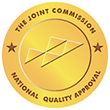In individual therapy, patients work one-on-one with a master’s level licensed psychotherapist or an addiction counselor to gain a deeper understanding of the disease of addiction, learn healthier ways to manage stress, build a stronger sense of self, identify underlying issues fueling the addiction and ultimately, change destructive behaviors.
Patients receive intensive, individualized attention during one-on-one therapy. In a confidential, judgment-free environment, patients can feel safe expressing their feelings and emotions, including shame, guilt and anger, and talking about highly personal experiences that have contributed to their addiction.
Topics discussed may include a patient’s progress in recovery, areas of struggle, interactions with others, and managing withdrawal and cravings. Patients may also set personal goals for the days ahead, such as practicing the skills learned in treatment or attending a certain number of group therapy sessions, as well as their longer-term future. One of the goals of individual therapy is also to help clients feel a greater sense of self-worth and self-esteem, which contribute to overall well-being and relapse prevention.
Individual therapy may use multiple types of treatment techniques, including:
- Motivational interviewing, which helps patients indentify their personal motivation for changing their behavior by asking open-ended questions, encouraging reflection and helping clients envision a better future.
- Cognitive behavioral therapy (CBT), which helps clients identify and correct thought patterns that have led to unhealthy, destructive behaviors.
- Dialectical behavior therapy, in which clients learn to practice mindfulness as a way to manage stress, build feelings of self-worth and cope with cravings.
Neurocognitive Retraining
To reduce the frequency and severity of patients’ cravings, nicotine addiction, anxiety and depression, mental discomfort and stress, patients may also participate in weekly individual sessions that target and treat damage to the brain from substance abuse. Neurocognitive retraining offers patients drug-free, natural and non-pharmacologic tools to manage stress and anxiety.
Neurocognitive retraining techniques include:
- Self-hypnosis, a strategy for tapping in to deep stores of willpower in the unconscious mind.
- Biofeedback with Heart Rate Variability (HRV) training, to promote relaxation, help patients gain more control over stress responses and diminish the urge to use.
- Audio-visual brain entrainment (AVE), which uses lights and tones to guide brainwave activity.
Aromatherapy may be used to enhance comfort during individual sessions





















